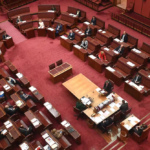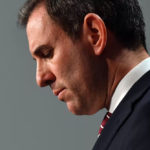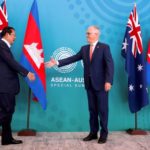NSW Government: Committed to addressing the challenges posed by demographic trends
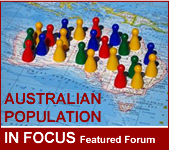
The NSW Deputy Premier, the Hon. Andrew Stoner MP, delivered the following opening address at Global Access Partners’ National Economic Review 2011: Australia’s Annual Growth Summit on Friday 16 September 2011.
As Australia’s largest and most diverse economy, home to 32% of the country’s population, New South Wales should play a role in any national debate on the subject of growth.
The NSW economy is larger than many national economies in the Asia Pacific, including Singapore, Malaysia and the Philippines, and our workforce is 3.5 million strong.
Sydney — the business hub of Australia — accounts for almost one quarter of Australia’s total annual output of goods and services.
But as impressive as this sounds, it is not, of course, the whole story.
The challenges encountered by the international community are diverse. The economic pressures faced by the United States and Europe, the rapid growth of China and India, and global population growth and ageing are as much ours as anyone else’s.
At home, the strong Australian dollar is impacting our trade-exposed sectors, particularly manufacturing. While we benefit from the mining boom, we need to remain vigilant about the structural challenges facing our economy.
As the newly elected government of NSW, it is our responsibility to deliver the policy settings, programs and infrastructure needed to address such issues, and to support economic and social stability — and indeed prosperity — for NSW into the future.
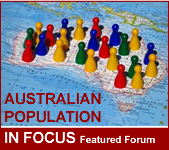 In terms of growth, managing such commitments requires careful consideration of population projections, planning systems, infrastructure needs, economic development initiatives and social programs.
In terms of growth, managing such commitments requires careful consideration of population projections, planning systems, infrastructure needs, economic development initiatives and social programs.
We’re committed to this task. We were elected to rebuild NSW, and that is exactly what we are going to do.
Through the delivery of our 100 Day Plan, we’ve made early progress.
Our Budget delivered on September 7, together with our 10-year plan for the State, NSW 2021, will help chart the course for making NSW number one again.
Population demographics
In planning for the future, the first consideration is population demographics, for it is that which will drive social, economic and infrastructure requirements.
Over the next decade, the NSW economy will have grown more than 30 per cent over current levels. Our workforce will have grown from about 3.5 million to 3.9 million, our population will have reached about 8 million and the average age of NSW residents will have increased from 39 to 41.
Planning priorities
In the context of demographic patterns, the state needs to place a priority on planning and a legislative framework to support economic growth.
The NSW Government has allocated $7.5 million over two years in the Budget to deliver a planning system that is simple, fair and transparent.
In addition to scrapping Part 3A of the Environmental Planning and Assessment Act, the Government has initiated a wide-ranging review of the State’s planning legislation. The review will involve extensive community and business consultation, with a report due by the end of 2012.
Addressing housing
The NSW Government is taking steps to overturn a serious housing shortage in this State. In July, we announced the accelerated release of land in the North West and South West Sydney Growth Centres to help make home ownership a reality for more young families.
This is supported by $37.1 million in the Budget to stimulate housing growth and address the housing shortfall.
Infrastructure NSW
With planning in place, infrastructure and service provision comes to the fore.
Infrastructure investment will be critical to restoring confidence in the NSW economy.
The NSW Government is determined to address the State’s infrastructure backlog and deliver projects to deal with the challenges driven by population growth across NSW.
The establishment of Infrastructure NSW (http://www.planning.nsw.gov.au/) will properly deliver infrastructure for this State.
For the first time, NSW will have a robust and independent infrastructure plan based on the best interests of the broader community. Projects will be considered under a detailed 5-year infrastructure plan and 20-year State Infrastructure Strategy (http://www.treasury.nsw.gov.au/sis/state_infrastructure_strategy).
The Government has committed $62.6 billion in the Budget to infrastructure over the next four years — the biggest infrastructure commitment in the state’s history. This includes $6.3 billion investment in transport and roads.
Our Budget includes funding for major rail infrastructure including:
- $314 million to develop the 23km North West Rail Link (http://northwestrail.com.au/) between Epping and Rouse Hill
- $292 million to continue construction of the South West Rail Link (http://www.tca.nsw.gov.au/Our-Projects/Current-Projects/South-West-Rail-Link/South-West-Rail-Link/default.aspx) which includes 11.4km of twin track between Glenfield and Leppington
- $103 million to expand light rail in Sydney’s CBD and the inner west.
Our commitment to the South West and North West Rail Links — with work begun in our first 100 days — means residents can buy in confidence, knowing transport infrastructure is being delivered for our growth centres.
We’ve also established an Integrated Transport Authority to ensure transport projects are built on time and on budget.
The Government is committed to delivering key transport projects in regional NSW, including a $4.2 billion investment in the regional and rural road network and the upgrade of the Pacific and Princes Highways.
To deliver on these major initiatives, the Government will proceed to market with the long-term lease of Port Botany to help meet Commonwealth funding offers.
Under Restart NSW, the NSW Government’s Infrastructure Fund, 30% of funds will go to rural and regional projects outside Sydney, Newcastle and Wollongong.
We’ve committed $362 million for rural and regional bus services across the State; $159 million for rail improvements on the Country Regional Network and $17 million for community transport services.
We have announced policies to encourage regional decentralisation and relocation.
Under the Regional Kick-Start program, a $7,000 Regional Relocation Grant is available to families moving to regional communities.
Business confidence
Business confidence will be vital for turning around the NSW economy.
We are providing a payroll tax rebate to businesses who are the first to create 100,000 new jobs under our Jobs Action Plan. We are also encouraging business by providing a $4,000 rebate for each new job created.
Investment Attraction
We are committed to attracting investment and supporting jobs, particularly in regional NSW where unemployment levels are often higher than in metropolitan Sydney.
We have committed $77 million to the State Investment Attraction Scheme, and over $53 million ($53.056 million) to the Regional Industries Investment Fund (http://www.business.nsw.gov.au/assistance-and-support/grants/regional-programs/regional-industries-investment-fund) to target new investment and jobs.
Trade activities
We will be helping NSW businesses tap into international markets, to drive exports, trade and investment, particularly in the fast growing economies of China and India. We have established the NSW Export and Investment Advisory Board and appointed a Parliamentary Secretary for Asia Pacific Trade.
We will be harnessing the State’s great cultural diversity, language skills and overseas links through a new Multicultural Business Advisory Panel, which will work with the Export and Investment Advisory Board.
Creating opportunities in the education sector
Skills development, education and training are also needed to make our economy more competitive.
We’re developing links between the business, education and research sectors to focus on workforce and industry development.
Business and skilled migration
Business migrants make an important contribution to the State’s economy — they bring investment, skills and jobs to our State.
Migration will help us meet skills shortages and sustain an ageing workforce.
Our State Migration Plan will ensure NSW works with the Commonwealth to shape migration policies, particularly in skilled and business migration.
NSW’s State Migration Program is being reviewed to boost the attractiveness of NSW for priority skilled migrants.
We want to attract more high-value businesses to the State. We want the best and brightest from around the world to live and work here in NSW.
Industry Action Plans
A skilled workforce needs a healthy industry base, and we recognise the competitive pressures our industries face in the global economy.
That’s why we are developing Industry Action Plans and appointing Industry Taskforces to position key industry sectors for future growth, resilience, innovation and productivity, global competitiveness and new investment opportunities over the next decade.
The first five sectors being targeted for Industry Action Plans are:
- Manufacturing;
- Professional Services;
- The Digital Economy;
- International Education and Research; and
- Tourism and Events.
We’ve established the Visitor Economy Taskforce, chaired by former Sydney Airport CEO Russell Balding, to develop a tourism and events strategy to double tourism expenditure to NSW by 2020.
Today I’m pleased to announce the appointment of the following Industry Taskforce Chairs:
- The Manufacturing Taskforce to be chaired by Andrew King, from Capstone Partners who has had a forty year career in manufacturing, including with Rheem/Southcorp, Carrier Airconditioning and Victa.
- The Professional Services Taskforce to be chaired by the Hon Warwick Smith AM, Chair of ANZ Bank NSW and ACT.
- The Digital Economy Taskforce to be chaired by Glenn Wightwick, Director of IBM Research and Development Australia.
Research, innovation and technology will continue to play a key role in our modern economy.
That is why we have committed $10 million in 2011/12 to the Science Leveraging Fund, to increase the competitiveness of bids made by NSW research consortia to Commonwealth research funding programs.
Small Business Support
For our small business sector, that all-important engine room of employment, we’ve provided a strong voice through the newly appointed Small Business Commissioner Yasmin King, whose office will also provide access to straightforward dispute resolution and mediation services.
We plan to reduce red tape in this State by 20% by introducing a ‘one on, two off’ rule for new regulations.
We are implementing a 30-day payment policy across the public sector to ensure NSW Government agencies pay their bills on time, to support business cashflows.
Conclusion
In conclusion, the NSW Government is committed to addressing the challenges posed by demographic trends facing our State and Australia.
A holistic approach is required, across all levels of government, and we’re committed to that task on behalf of the residents of NSW.
The Hon Andrew Stoner is the NSW Deputy Premier, Minister for Trade and Investment, and Minister for Regional Infrastructure and Services. He was first elected into Parliament as the Nationals Member for Oxley on March 27, 1999 and was elected Leader of the NSW Nationals in March 2003. Following the NSW Liberals & Nationals election win on March 26 2011, Andrew was sworn in as Deputy Premier and took on his Ministerial responsibilities.







